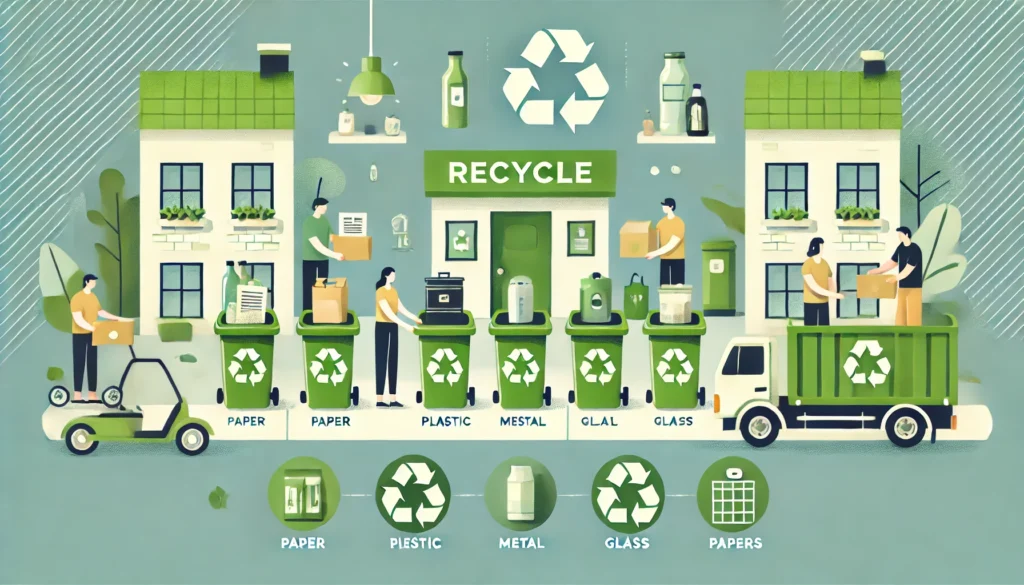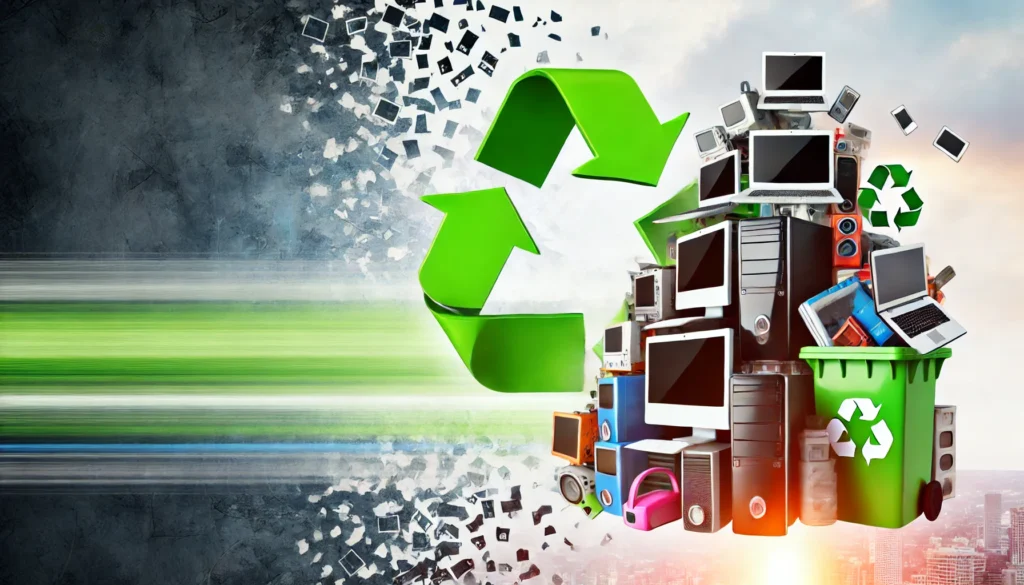As awareness of environmental issues grows, more communities are taking steps to reduce waste and promote sustainability. One excellent way to contribute is by organizing a Recycle Collection Drive at your Cooperative Housing Society. A Recycle Collection Drive not only helps reduce waste but also encourages residents to adopt eco-friendly practices. In this blog post, we will guide you through the steps to organize an effective recycling drive, explain why it’s important, and provide practical examples to help you get started.
Why Organize a Recycle Collection Drive?
Electronic waste, plastic, paper, metal, and other recyclable materials often pile up in our homes. Many people are unaware of how to properly dispose of these items, which leads to them ending up in landfills, contributing to environmental pollution. A Recycle Collection Drive in your housing society can address this issue by providing a dedicated space and time for residents to dispose of recyclable items responsibly.
For example, during a Recycle Collection Drive, residents can bring old batteries, broken toys, used plastic bottles, and outdated electronic devices to a central location within the society. This not only clears clutter from homes but also ensures that harmful substances from e-waste, such as lead and mercury, do not seep into the environment.
Steps to Organize a Recycle Collection Drive at Your Society
Organizing a successful Recycle Collection Drive in a Cooperative Housing Society requires some planning. Here’s a step-by-step guide to help you:
1. Form a Committee
- Start by forming a small committee of enthusiastic volunteers. These could be residents passionate about environmental causes. Having a dedicated team will help in organizing, promoting, and managing the drive effectively.
2. Set a Date and Location
- Choose a date that works for most residents, such as a weekend or a public holiday. For instance, organizing the drive on Gandhi Jayanti (2nd October), a day associated with cleanliness and civic responsibility, can inspire greater participation. Select a visible, easily accessible spot in the society, like the security gate or clubhouse, as the collection point.
3. Communicate with Residents
- Use posters, social media groups, and flyers to inform everyone about the event. Mention what kind of items can be recycled, such as:
- Plastic bottles
- Old batteries
- Broken electronics (e.g., computers, phones)
- Used papers, newspapers, and magazines
- Glass bottles or jars
Encourage residents to sort through their homes and bring recyclable materials to the designated location on the chosen date.
4. Partner with a Recycling Company
- Research local recycling companies or waste management services that will accept the materials you collect. Many companies offer pick-up services, especially if your society collects a significant amount of recyclable items. Confirm in advance which materials they will accept to avoid issues on collection day.
5. Prepare Collection Bins
- Arrange separate bins or containers for different types of recyclable materials, such as paper, plastic, metals, glass, and electronics. Label each bin clearly so residents can easily sort their items. For example, you can place a large bin for electronic waste (e-waste) next to a smaller one for glass bottles.
6. Motivate Participation with Incentives
- To encourage more residents to participate, consider offering small incentives. For example, you could promise that any money earned from selling the recycled materials will be used for community projects like improving children’s play areas or organizing a society event.
Benefits of a Recycle Collection Drive
- Cleaner Society Premises: Many residents often store recyclable items like old newspapers and plastic bottles in their homes. A recycling drive helps clean up homes and the society premises by providing an organized way to dispose of such items.
- Environmental Protection: By recycling, you reduce the amount of waste sent to landfills, thereby cutting down pollution. Recycling materials like plastics and e-waste also prevents harmful chemicals from contaminating soil and water.
- Promoting Sustainability: Organizing such a drive educates residents about the importance of recycling and promotes a culture of sustainability in your society. It encourages everyone to be mindful of their waste habits.
- Community Building: A recycling drive can bring residents together for a common cause. It fosters a sense of community and collective responsibility toward protecting the environment.
Example of a Successful Recycle Collection Drive
For instance, Royal Galaxy Cooperative Housing Society organized a Recycle Collection Drive during the Gandhi Jayanti week. The event was promoted across society notice boards and WhatsApp groups, encouraging residents to bring old batteries, electronics, and plastic bottles. At the end of the drive, the society collected over 200 kilograms of recyclable material, which was handed over to a local recycling firm. The money earned from recycling was used to improve the society’s garden and play area.
Organizing a Recycle Collection Drive in your Cooperative Housing Society is a great way to promote sustainability, reduce waste, and protect the environment. By following the steps outlined in this guide, you can create a successful event that benefits both the community and the planet. Whether you’re collecting plastic bottles, electronic waste, or old books, a well-planned recycling drive will inspire residents to adopt more eco-friendly habits.
Discover more from Green Ecosystem - Renewable Energy, Agriculture, and Environmental Sustainability
Subscribe to get the latest posts sent to your email.


